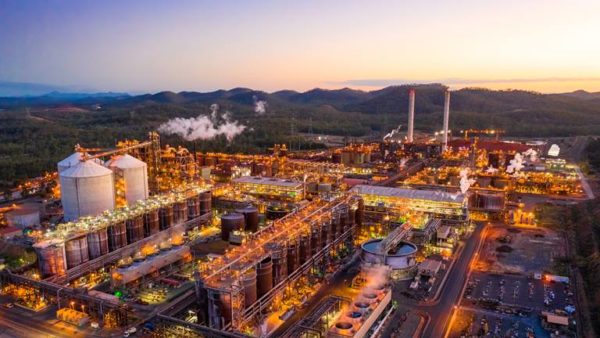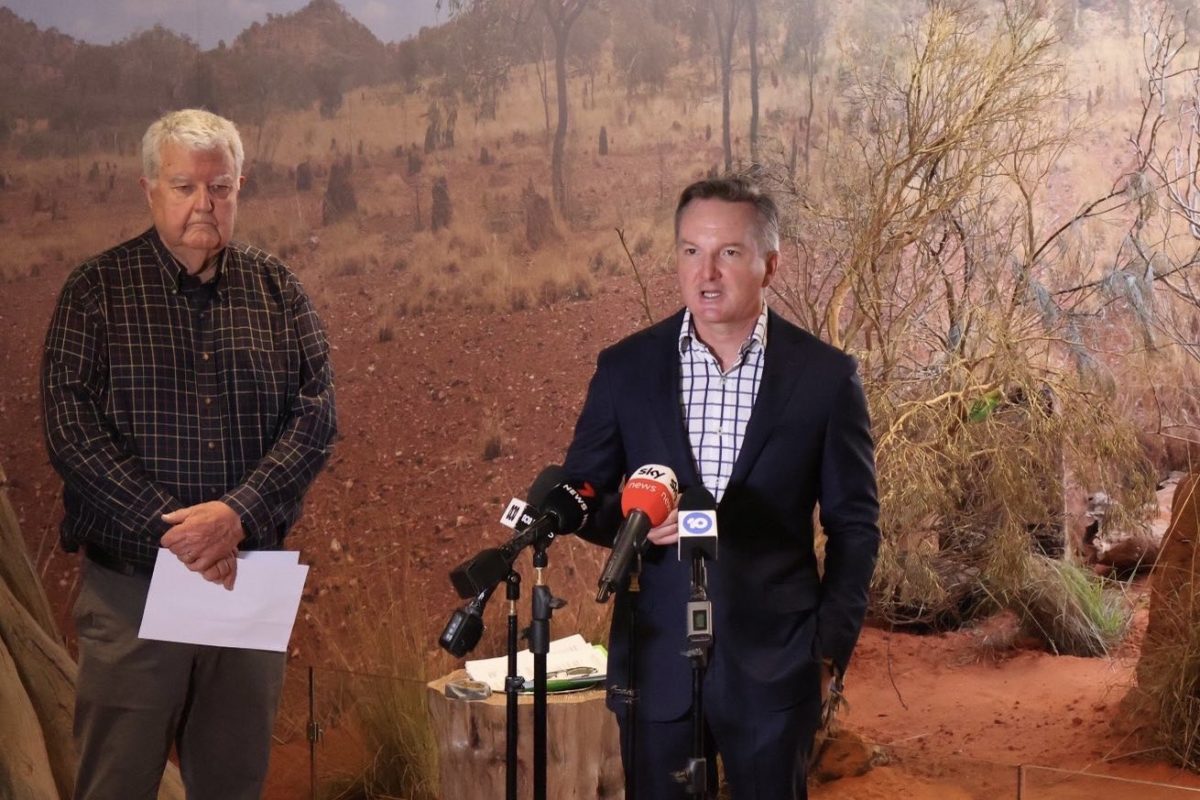Speaking from Gladstone, Australia’s minister for climate change and energy, Chris Bowen, announced Labor’s proposed “package” of reforms to its Safeguard Mechanism, the policy tasked with bringing down the emissions of the country’s major polluters.
Specifically, the mechanism makes it compulsory for 215 facilities producing more than 100,000 tonnes of greenhouse gases a year to offset their emissions. Since Labor’s election, it has been consulting to reform the Coalition-introduced policy – a strategy which took on new weight after the integrity of Australia’s carbon credit scheme, on which the Safeguard Mechanism heavily relies, came under scrutiny in 2022.
Labor’s reform package
Under Labor’s reform package, the top polluting facilities will be required to reduce their emissions by 28% by 2030, amounting to a 4.9% yearly reduction for the next seven years.

Image: Rio Tinto
To help “trade exposed” facilities reach this benchmark, the federal government will release $600 million (USD 414 million) from its $1.9 billion Powering the Regions Fund.
As part of the package, the government is also proposing a $75 cap on the price of Australian carbon credits – which underpin the Safeguard Mechanism as polluting facilities are required to use the credits to “offset” their emissions. The results of an independent review into Australia’s carbon credits scheme concluded it was not fundamentally flawed, but recommended a series of governance and transparency changes.
Under the Safeguard Mechanism, Bowen said each polluting facility’s emissions “baseline” will continue to be site specific, before the government moves towards more uniform industry baselines by 2030. The government will also continue to set baselines according to emissions intensity, rather than actual emissions, meaning the limit can rise and fall according to a facility’s total production.
Reforms
Slated to come into effect on 1 July 2022, Labor’s reform package will now be debated – though, as Greenpeace’s Glenn Walker explains, the setup of the Safeguard Mechanism as primarily a form of regulation rather than legislation means this process is somewhat unusual.
“The vast majority of the changes are just something the minister can sign off on,” Walker tells pv magazine Australia. Some elements of the policy, like how the Safeguard Mechanism credits work, require legislative changes, “but the rest of the policy – all the details that were released today – are simply Chris Bowen signing off on changes.”
Walker noted that these “can be disallowed in the parliament, but they are not something, say, the cross bench can put amendments up for. So it’s going to be really interesting to see how this plays out politically, because there isn’t the same leeway to seek specific amendments as there is with other forms of legislation.”
Not far enough
While Walker says the reform package would mark a substantial improvement on how the Safeguard Mechanism is enacted, he doesn’t think the Labor government’s reforms go far enough.
Walker sees two main problems with the Safeguard Mechanism. Firstly, the unfettered use of offsets, which he says creates license to continue polluting.
And secondly the lingering questions around the actual integrity of these offsets, which take the form of Australian carbon credits or ACCUs.
Walker described himself as “disappointed” by the independent review of Australia’s carbon credit scheme – which he felt largely ignored problems of methodology in the creation of carbon credits.
Walker believes the use of carbon credit offsets should be capped, and coal, oil and gas companies should be barred from using these credits altogether. Moreover, Walker doesn’t believe fossil fuel companies should be allowed any access to the $600 million the government has offered to help facilities reach their new baselines.
More generous caps for industries “which have a future,” such as cement and aluminium industries, should be offered by the government, Walker says.
This content is protected by copyright and may not be reused. If you want to cooperate with us and would like to reuse some of our content, please contact: editors@pv-magazine.com.









More of the same… Offsets, Carbon Credirs, Voluntary Actions have ALL FAILED & WILL CONTINUE TO FAIL TILL SOLAR ENERGY PROVIDERS ARE NOT GIVEN A LEVEL PLAYING FIELD BY IMPLEMENTING THE 1992 UN Rio PMP (Polluters Must Pay) Principle (#16).. and Credited to Solar Energy Providing POLLUTION FREE ELECTRICITY… at a Global Societal Cost of Pollution.. $0.28/KWhe..